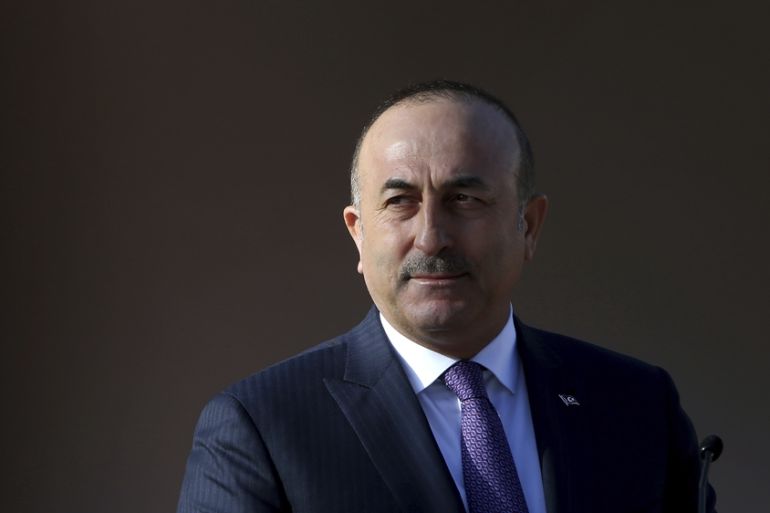Turkey postpones Afghanistan peace summit over Taliban no-show
The international conference, deemed essential for war-torn country’s future amid escalating violence, now to be held after Ramadan.

Turkey says it is postponing a much-anticipated Afghan peace conference in Istanbul until the end of the Muslim holy month of Ramadan.
“We thought that it would be beneficial to postpone it … We consulted Qatar, the United States and the United Nations and decided to hold it after Ramadan and Eid festivities,” Turkish Foreign Minister Mevlut Cavusoglu told the Haberturk news channel on Tuesday.
Keep reading
list of 3 itemsHow will US troop withdrawal affect Afghanistan?
Peace can still be achieved in Afghanistan
Cavusoglu added that there is “no need to hurry” after the recent decision by the US to withdraw its troops from Afghanistan.
The Eid al-Fitr holiday follows Ramadan, which ends this year in mid-May.
The international conference, deemed essential for the war-torn country’s future amid escalating violence, was scheduled to be held from April 24 until May 4.
The Taliban had earlier refused to attend any Afghan peace summit until all foreign forces were pulled out of Afghanistan.
“The conference would be meaningless without the Taliban joining. At the moment, we decided to postpone it since there is no clarity about the formation of the delegations and participation,” Cavusoglu said.
“The aim is not to initiate alternative talks to Doha but to contribute to the process. Hosting the meeting together in Istanbul will be Turkey, Qatar and the UN.”
A senior Afghan government official told the Reuters news agency the Istanbul meeting is “not happening on the given date because the Taliban refused to attend”.
The postponement was confirmed by two other sources, including one official whose country is involved in the planning process, Reuters said.
Taliban spokesman Mohammad Naeem told Reuters in a text message that the group did not have any information about the postponement and that he could not say anything about future dates for the conference, post-Ramadan.
An Afghan government spokesman declined to comment on the matter. There was no immediate revised date.
The US and Taliban last year agreed that all foreign forces would be withdrawn from Afghanistan by May 1 – a date that was pushed back last week by US President Joe Biden.
US State Department spokesman Ned Price did not confirm the postponement but said broader diplomatic efforts will continue. “We’ve always been clear, Istanbul was not a replacement for Doha,” he said.
Taliban and Afghan government negotiators began peace talks last year in the Qatari capital of Doha but progress was slow and violence continued to escalate in Afghanistan.
Washington was attempting to speed up the process, which included pushing for the summit in Turkey that was to be attended by more than 20 countries and global bodies.
UN spokesman Stephane Dujarric said earlier on Tuesday that he could not confirm if the conference had been postponed.
“The United Nations, along with the co-conveners, Qatar, Turkey, we’re continuing to engage with representatives of the Islamic Republic of Afghanistan and the Taliban on ways to strengthen and add impetus to the intra-Afghan negotiations,” Dujarric told reporters.
The UN special envoy for Afghanistan, Deborah Lyons, was in Doha last week to discuss with Afghan parties “the best way the international community can support them in making progress on their negotiations toward a just and durable political settlement,” Dujarric said.
“Our focus will continue to be on progress in intra-Afghan negotiations, which is a critical part of the way forward.”
A leading US general voiced “grave doubts” on Tuesday about the Taliban’s reliability as a negotiating partner for US and Afghan diplomats after the US military’s withdrawal from the US’s’s longest war.
The Taliban ruled Afghanistan from 1996 to 2001, when they were removed by US-led forces. Since then, they have waged a long-running armed uprising and still control wide swathes of territory.